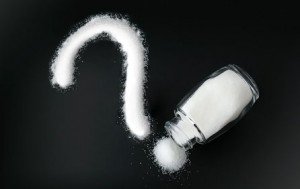Writer Kate Fraser investigates the health effects of salt and what we are doing to mitigate them.
 An excerpt (from the Press, read in full here):
An excerpt (from the Press, read in full here):
How much salt is too much?
The anti-smoking lobby has a pointer or two when it comes to cutting down on salt, writes Kate Fraser .
Every other day we are chided for our bad food habits. We eat too much sugar; we don’t know good fats from bad; we are way too fond of junk food. Noew there is another enemy in the sights: sodium chloride, or as most of us term it, salt.
Chemically speaking, a salt is any combination of an anion of an acid and a cation of a base. So not every salt contains sodium, but both table salt and sea salt are 99.8 per cent sodium chloride (NaCl).
In non-scientific food discussions, “salt” is widely accepted. We know what it looks like and how it tastes and we like it. We are hearing the message that too much salt is bad for us.
The NZ Stroke Foundation is leading the charge, warning us there are excessively high levels of salt in processed foods and takeaways.
Health authorities, from the World Health Organisation (WHO) to the Heart Foundation are hugely concerned that our daily salt consumption is reaching literally dizzy heights. Salt is identified by the Stroke Foundation of NZ as an important causal link between raised blood pressure and stroke.